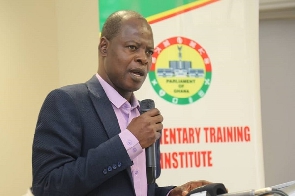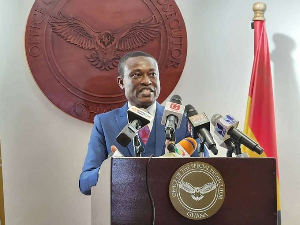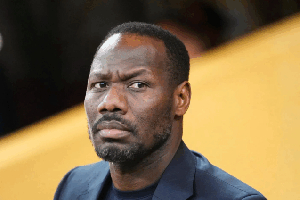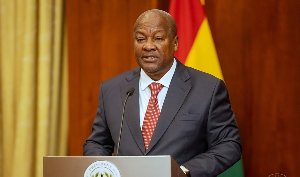Chairman of the Civil Society Platform on Oil and Gas, Dr. Steve Manteaw has added his voice to the raging debate over the increasing public sector debt in Ghana.
He stated that debt in itself is not bad but, how the monies borrowed are utilised is what must be a concern.
In a Facebook post, Dr. Manteaw said “Debt in itself isn’t a bad thing, provided one can show how prudently the borrowed money has been used. It’s called accountability.”
He further noted the government borrowed to finance free programmes for Ghanaians hence the inability to point to what the loans have been used for.
“If you borrow to finance freebies you’ll certainly have little to show for it. Smart borrowing is the option for smart leaders,” he said.
Meanwhile, a Deputy Finance Minister, Kweku Kwarteng, has conceded that the concerns about Ghana’s rising public debt expressed by a section of the Ghanaian public is a legitimate one that has to be taken seriously.
He said it is a rising public debt is not a situation no country would want to bring upon itself.
“There are concerns about our country’s rising debt, that is a concern for everybody. No country should assume you can go on and just borrow yourself out of poverty, and so those concerns for me are legitimate”, he said.
Ghana's public debt stock currently stands at 65%, with the latest projection by the IMF that the country could end the year with a debt stock of about 76.7%.
This has raised questions about the health of the economy including whether or not the country has been classified as a HIPC country by the World Bank.
The deputy finance minister, though acknowledges the rising public debt dismissed that the country has been declared HIPC as had been purported in some quarters of the media.
“Of course, Ghana is not HIPC. I don’t think anybody has suggested we are HIPC”, he responded when asked whether or not Ghana is HIPC.
But he maintains there is no cause for alarm, as what matters is what the future holds and not the current state of affairs.
“However, in the case of Ghana, if we make observations for our debt build-up, we need to go into it and find out why then we will know whether the trend is likely to be continued in the future or it will not. Then we will test the economic strategies that are producing those outcomes and make a determination for ourselves going forward”, he explained
According to the deputy finance minister, Covid-19 has contributed significantly to the ballooning of the country’s debt portfolio.
“The one billion we get, add to our debt portfolio. So, while we are discussing debt, we ought to understand that the money that we needed to procure in order to deal with expenditures needed in the line of Covid-19, also added to our debt”, he said.
He insists Ghana’s economic situation cannot be assessed in isolation, but rather it terms that compares it with global trends.
“Have we done well or we have not done well, you need to relate that to what is happening globally, then we will see whether Ghana has managed the situation well or not. If we do that, we will be left in no doubt that Ghana’s Fiscal management in the light of covid has been very good.”
Business News of Thursday, 29 October 2020
Source: 3news.com













